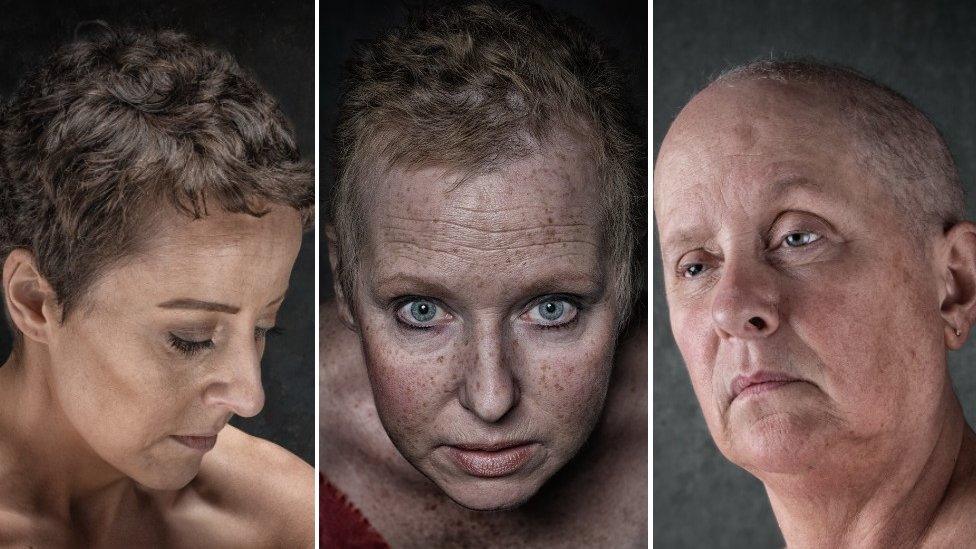Cancer strategy for Northern Ireland aims for 'top class outcomes'
- Published
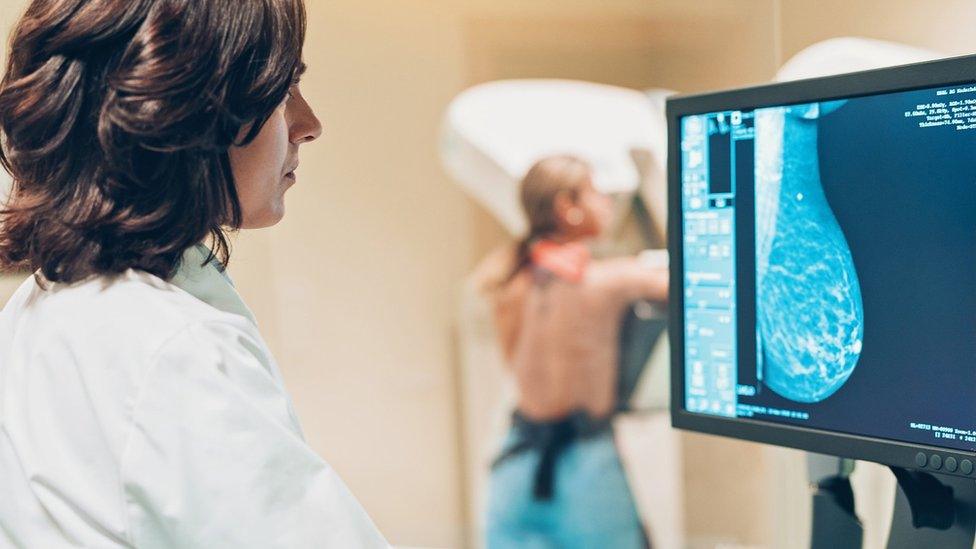
A 10-year health strategy which aims to deliver "top-class outcomes" for people with cancer in Northern Ireland has been launched.
Two rapid diagnosis centres are being set up at Whiteabbey Hospital in County Antrim and South Tyrone Hospital in Dungannon.
These will treat patients with concerning symptoms who do not meet the criteria for a red flag referral.
The goal is to open both centres to the first patients later in 2022.
Health Minister Robin Swann said the aim was to ensure "equitable and timely" access to services for everyone, wherever they lived.
But he stressed that meeting the challenges depended on increased and sustained funding.
A funding plan sets out an estimated initial investment of about £2.3m in the first year, followed by about £145m a year when the strategy is fully in place.
There is a further one-off capital investment of about £73m.


This cancer strategy has a lot to live up to.
It has been years in the making and a great deal of time and effort has been invested getting it thus far.
At one end are the growing number of cancer patients who need timely and dedicated treatment.
At the other end are staff who need support and reassurance that services are sustainable.
But for the two to meet somewhere in the middle, there needs to be funding, stable government and leadership.
Instead, some of those who work within the system including charities have said that the system is fragile, with teams left demoralised and exhausted.
That wall of negativity is not good for those providing the care or those receiving it.
Some cancer nurses are working beyond their normal hours. That is down to staff sickness and inadequate numbers of specialist staff.
While it is hard when families complain about standards, some nurses have told me it is even harder when management continually asks for more.
Producing a strategy is all very well.
But to bring it to life will require much planning, multi-year budgets, leadership across health and social care and, above all, a stable government dedicated to meeting the needs of the people.

Launching the strategy during a visit to the South Tyrone Hospital on Tuesday, Mr Swann said: "Regrettably cancer services were challenged before the pandemic and there continues to be significant capacity and workforce challenges across a range of areas.
"There is a need to move forward urgently to implement the actions outlined in this strategy to rebuild and transform our services in the short, medium and longer term."
The aim, he said, was to create "equitable and timely access to the most effective, evidence-based referral, diagnosis, treatment, support and person centred cancer care".
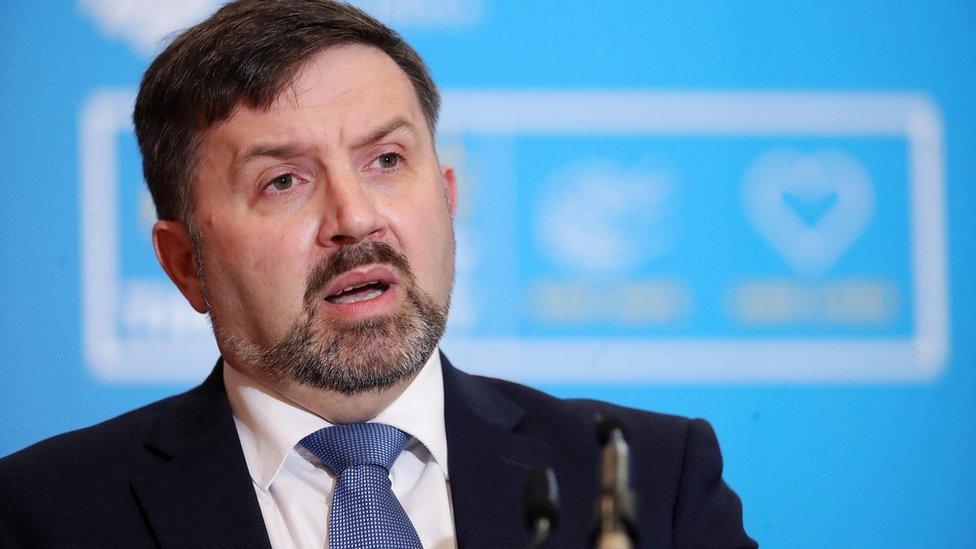
The minister stressed that addressing the challenges facing cancer services would depend on funding
The strategy sets out 60 recommendations to be taken forward over the next 10 years.
Four key themes are set out:
Preventing cancer - reducing the growth in the number of people diagnosed with preventable cancers
Diagnosing and treating cancer - improving survival rates
Supporting people to live and die well - improving the experience of people diagnosed with cancer
Implementing the strategy
Mr Swann stressed that addressing the challenges currently facing cancer services depended on "significantly increased and sustained funding".
"Unfortunately, cancer services in Northern Ireland have historically been underfunded in comparison with other UK jurisdictions," he said.
The strategy was developed by people who live with cancer, cancer charities, healthcare professionals from across all the trusts, the Public Health Agency (PHA), the Health and Social Care Board (HSCB), primary care and policy makers.
Addressing them, he said: "Without a doubt, your input has helped shape the final strategy and its recommendations."
He also highlighted recent and ongoing initiatives in cancer care, including a £10m grant scheme set up last year which has helped fund awareness campaigns, screening services, rehab and prehab services, mental health counselling, online support for people affected by cancer and teenage and young adult schemes.
"I have also committed annual recurrent investment of £2m to fund the recruitment of additional staff in oncology services," Mr Swann said.
This service has been under significant pressures for a number of years, and the additional funding will help in improving the ability to recruit staff," he added.
Cancer Focus Northern Ireland chief executive Richard Spratt said the strategy echoed its long-term vision and aims, but he was disappointed there was not an agreed multi-year budget to support its implementation.
"Cancer Focus NI demands an urgent commitment from all ministers to guarantee the recurring funding necessary to deliver all the strategy's recommendations," he added.
"This is our key ask for our politicians ahead of the upcoming assembly elections and the public will expect delivery."
Related topics
- Published11 February 2022

- Published5 January 2022
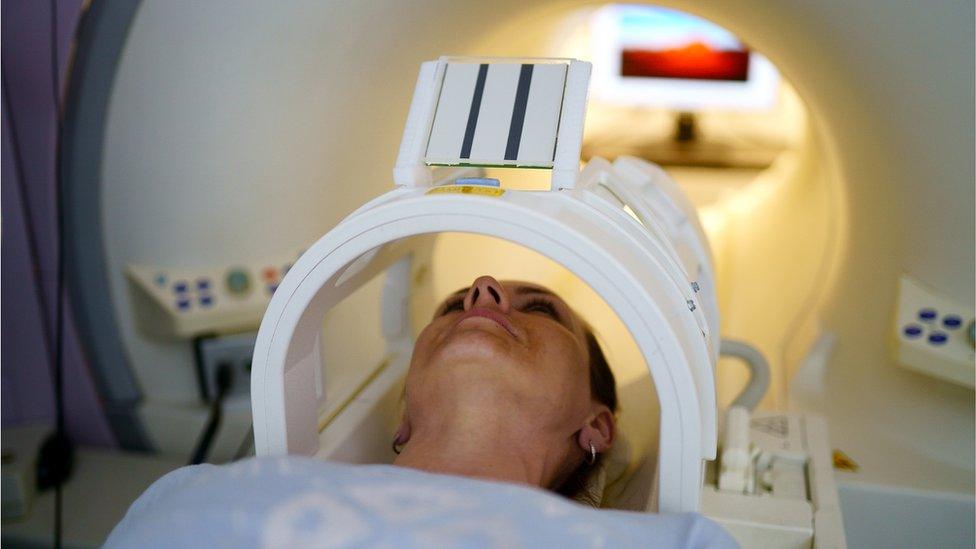
- Published25 August 2021
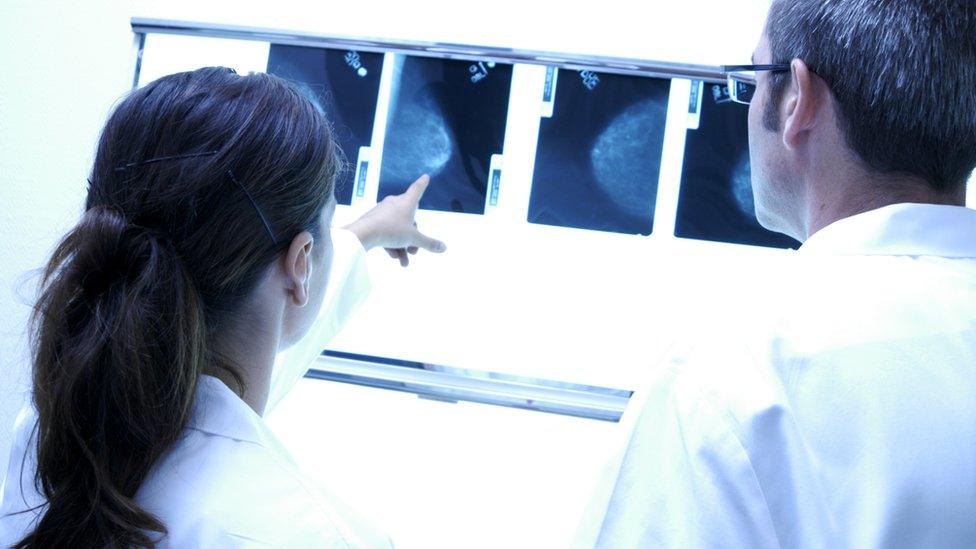
- Published16 March 2022
